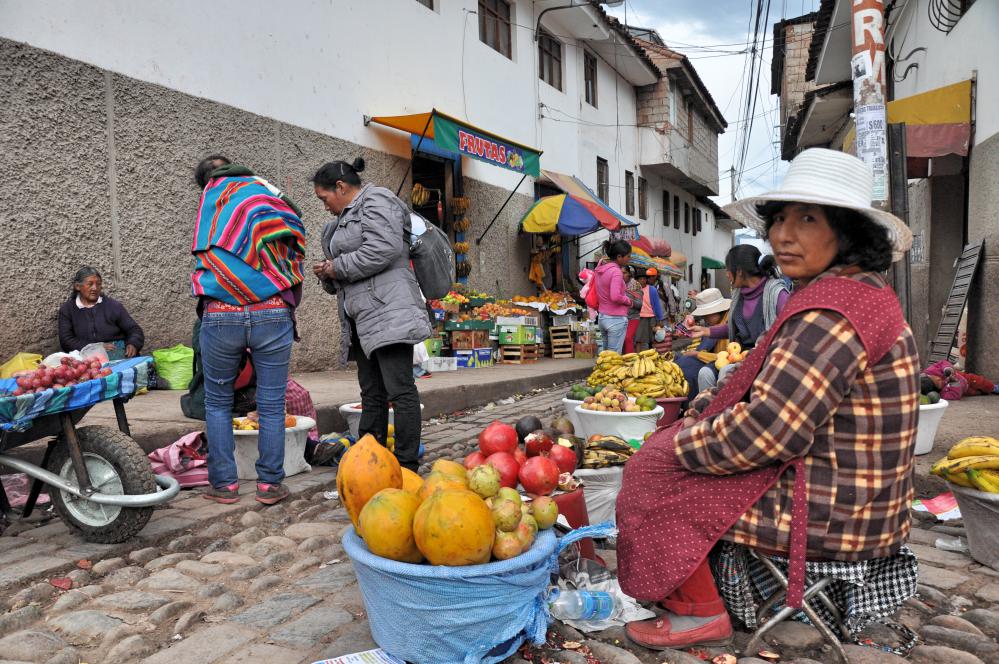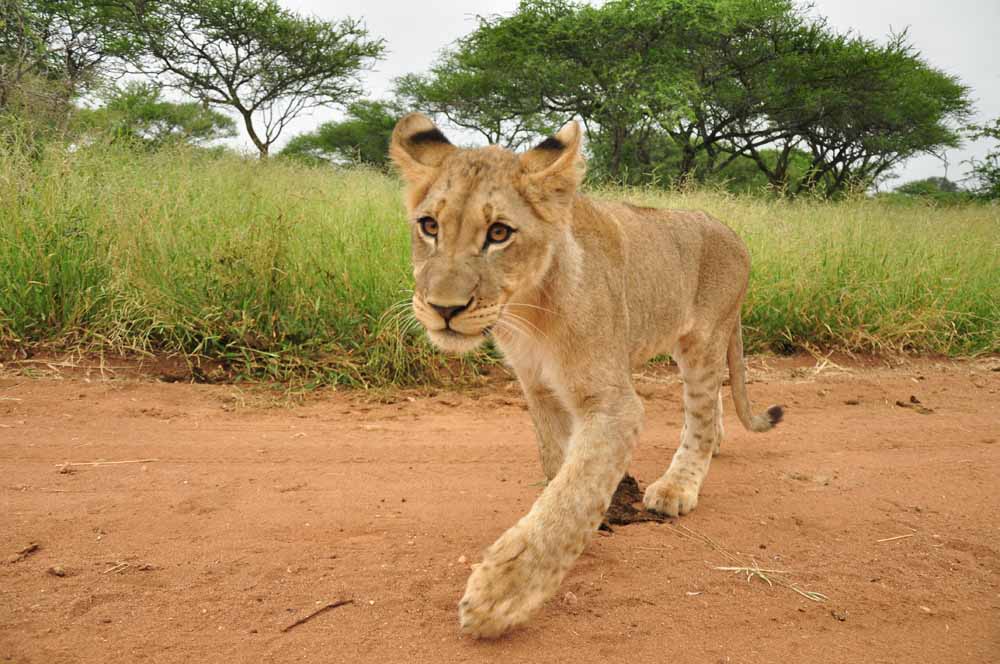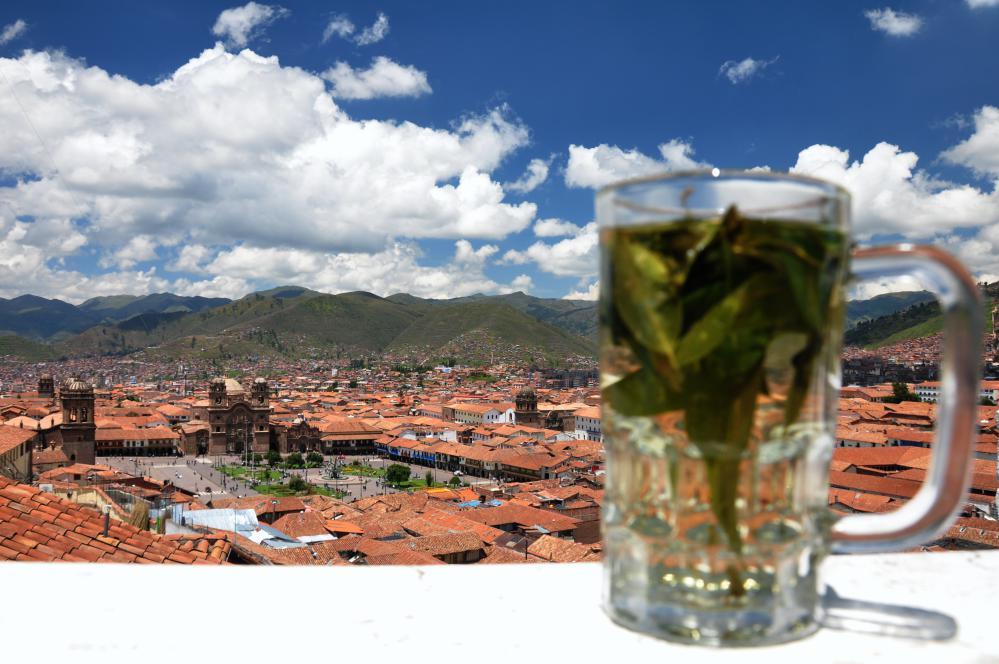When the clock tick-tocks midnight on New Year’s Eve, we’re reminded of how finite our time is and become acutely aware of the 365 days of possibilities. This new revolution around the sun usually comes with ambitious New Years’ resolutions. We promise ourselves that we’ll stop doing that or do more of this, even do things better. Who says we shouldn’t have travel resolutions too? Here are eight really easy ways to be a more responsible and smarter traveller.
1. Trees for travel
Dawn Jorgensen of The Incidental Tourist introduced me to Greenpop – a South African non-profit organisation co-founded by award-winning folk musician Jeremy Loops. For R120 (around $8) they’ll plant a tree on your behalf. It will minimise the carbon footprint you’ve amassed, especially through air travel. At 0.85 kg of Carbon Dioxide per kilometre, air travel produces the largest amount of Carbon Dioxide emissions per passenger kilometre, while a car produces around a quarter of that.
Not only do the trees planted by Greenpop gobble up some of those carbon emissions coming out of the plane’s exhaust and replace it with oxygen, but they also filter ground water, prevent soil erosion and give a home for birds and small critters. And what’s even better is that the trees are planted in barren, under-privileged areas in South Africa as part of an urban greening and reforestation initiative. Greenpop also sells gift cards, so you can gift someone a planted tree, no matter the occasion.
2. Give plastic the cold shoulder
Try to decrease your plastic usage this year. The average American uses around 10 000 plastic bottles in a lifetime. It’s predicted there’ll be more plastic than fish in the oceans by 2050. Most people buy bottled water when travelling because it’s convenient, without realising how much they’re contributing to plastic waste.
I try to carry a metal one-litre water canister instead. I fill it up over breakfast at my hotel before embarking on an adventure and top it up later at a hotel or restaurant. Most are more than willing to refill it (if the tap water is drinkable, of course). Pay them with a toothy smile and kind word of thanks. If I forget my water canister at home, I buy a two litre plastic bottle, use it during my trip and try to recycle it afterwards.
It’s not always possible though and I really struggled with this in India as it’s recommended not to drink tap water and only a few of the hotels we stayed at or restaurants we ate at had filtered water available.
You can also decrease your plastic usage by bringing along your own amenities from home, instead of using the hotel’s. It’s really easy to do. Place them in smaller plastic containers (which you can reuse each time you travel) to keep your luggage weight in check. Otherwise choose environmentally conscious accommodation options that refill their amenities into glass, metal or ceramic containers that stay in the room. Find a list of green accommodation options here.
I also find that it’s very useful to give face-to-face feedback to the hotel manager in order to try change perceptions and make the travel industry aware of travellers’ demands. I suggest they put water filters in the lobby or restaurant and bar areas and to consider using glass water bottles in the room rather than plastic. A good hotel manager will note your concerns. Many have responded positively saying that they have received numerous similar requests and are considering it.
Also pack a satchel or backpack instead of buying plastic bags when doing grocery shopping while travelling. Otherwise tie all four corners of a large scarf or sarong and strap it over your shoulder like a bag. Here’s a guide to 20 useful eco-friendly travel accessories and products.
Montreal-based photographer Benjamin Von Wong highlights the serious issue of plastic waste with his latest project Mermaids Hate Plastic, by photographing mermaids in a sea of 10 000 plastic bottles.
3. Three, two, one, cheese
I walked the streets of Bolivia, with my camera slung around my neck, eager to photograph the colourful clothes and daily lives of Bolivians. But I found many were reluctant to have their photographs taken and I soon learned about an old Bolivian belief that a photograph captures part of your soul.
No matter where you travel, be polite, always ask for permission to photograph someone first, show them the snap and offer to send it to them via email, WhatsApp or the post, so they don’t feel exploited and have a reminder of your meeting.
It’s also important not to encourage the rising popularity of poverty porn, which oversimplifies poverty in a sensational way.
4. Giving to children
The Ngorongoro Crater Conservation Area is the only conservation area in Tanzania where people – around 40 000 Maasai – are allowed to live among wild animals. As we drove through the country’s northern safari circuit en route to the Serengeti National Park, we saw countless children shrouded in traditional red and blue shukas along the road, often they would call out for money or sweets.
Ahead of our trip we were told that if we wanted to, we could bring stationery and school supplies for the Maasai children. However our guide Joseph Meducane of eXplore Plus Travel and Tours wisely advised not to gift directly to children as this discourages them from attending school. Instead they wait on the side of the road for safari vehicles full of tourists to pass by. Joseph suggested we give any donations directly to schools, teachers, parents or designated guides, who can distribute them fairly to prevent begging culture and encourage children to stay in school.
5. Say no to animal interactions
Do research before booking a tour operator or accommodation. Avoid so-called sanctuaries that offer interactions with wild animals such as elephant-back safaris, and walks with predatory cats such as lions, cheetahs and leopards. These practices are unnatural and the wild animals are often broken in – to try tame them and prepare them for interactions with humans – in an abusive manner. Also once big predatory cats are too big for human interactions they are often assigned to the canned hunting industry. Simply put, don’t do it! Wild animals should only be viewed in their natural habitat from a safe distance on safari vehicle or during a walking tour with a certified guide. South African travel bloggers and tourism products are expressing their support for responsible and sustainable travel practices that don’t include wildlife interactions with the #HandsOffOurWildlife hashtag, please have a look at it across various social media platforms.
Read more about how to choose sustainable and responsible volunteer programmes in South Africa.
6. A sense of community
More and more travellers are choosing tour operators and accommodation options with a CSR (Corporate Social Responsibility) programme, which aims to uplift local communities. They do this by sourcing food locally (to cut down on carbon emissions associated with transportation) and buying fresh produce from the surrounding community rather than supermarket chains. They employ locals, pay more than minimum wage, sell handmade crafts and curios made by the nearby communities, and support upskilling, educational and training programmes. Consider Fair Trade Tourism options when you travel.
7. Be a traveller not a tourist
While certain comforts, luxuries and expectations come with booking into a hotel, consider being ‘adopted’ by a local family during your travels. A home stay is the ideal way to be a traveller rather than merely being a tourist. It will give you interesting insight into the day-to-day life of locals from their traditions and customs to religious practices, which will give you a real and in-depth understanding of the country you’re travelling to. They may even narrate their homeland’s history over a home-cooked dinner.
When I was ill in Cusco, Peru ahead of our hike to Machu Picchu our adoptive mother looked after me like one of her own children and gave me a natural remedy of fresh celery sticks brewed in water to ease my stomach. And even though I’m not the biggest fan of celery, it really helped. They also gave us lots of cocoa tea to help us acclimatise to the altitude ahead of our five-day hike. Needless to say we returned and stayed longer than intended after our hike. It was a more authentic than any hostel, bed and breakfast or hotel experience I’ve ever had. If home stays aren’t available in the country or city you’re travelling to try staying with a vetted Airbnb host or couchsurfer.
8. Do a beach clean up
World Oceans Day is on 08 June, but you don’t have to wait until then to organise a beach clean up. My dear friend Gina and I organised a spontaneous one during our trip to Jeju-do Island.
We put on her iPod, danced around on the beach while picking up litter. Many strangers, both locals and tourists, approached us to ask what we were doing and why. Many were surprised that just like them, we were there on holiday too and simply wanted the beach to look clean and to prevent any of the garbage from being washed out to the ocean. What I found most heart-warming was that some asked to help us, even if only for a little while.
How do you try to be a more reponsible traveller? Please share your tips, tricks and hacks in the comments section below.

















Pingback: The 2019 South Africa Travel Calendar: Bucket list things to experience this year | Eager Journeys
You’ve given some really helpful tips here. I love the idea of planting a tree for each plane journey, I’m going to start doing this!
That’s awesome Tash! Whoop whoop! :) Here’s to more sustainable travel!
I love this! It’s so important that people become more aware of their impact. Thanks for writing such an in-depth post on this subject, too – a lot of people write so superficially but this is actually packed full of info.
Ellie that is such a wonderful compliment, thank you very much for your kind words! I hope it can make more people aware of how they can try to mitigate the impact and effects of their travels in some small way. Every little bit counts, right? :)
I love this post, all the eight points are essential to be not only a traveller, but a citizen of the world.
You are spot on! :)
These are such fantastic ideas, Iga! I especially loved hearing about what Greenpop is doing. I’ve bookmarked their site to give it a deeper look later!
Despite loving to be around animals, I’ve made it a practice to say no to ALL animal encounter experiences, no matter what kind of responsibility they claim to have over the animals’ well-being. It’s sad, but you just never can tell about these places, unfortunately. :(
That is so very true, Sarah, especially in Africa and Asia. I love your determination! What really makes me upset though is that many dubious organisations label themselves as NGOs or sanctuaries, meanwhile they are all about profit and care little for conservation or the wellbeing of the animals. And people fall for it because they don’t know any better.
Pingback: LP Pathfinders: top posts from January 2017 - IGWorldClub Mobile Photography
Thanks for a great post! I’ve found that sustainable travel provides many more opportunities for interacting with locals on a deeper level. Personally, I try to stay with locals during my travels – that means being very picky on Airbnb as I once booked a “homestay” in Bali that turned out to be a hostel.
Pingback: LP Pathfinders: top posts from January 2017 – Cheap Vacation fun
Pingback: LP Pathfinders: top posts from January 2017 – WTTC
Pingback: LP Pathfinders: top posts from January 2017 | Daily News Update
Pingback: LP Pathfinders: top posts from January 2017 - Easy Tours
Pingback: LP Pathfinders: top posts from January 2017 – BookingHood
Wonderful ideas here, Iga, thank you! I am currently at a home stay here in Bali, and have returned not once but three times to visit the same family – they are truly my Balinese family now! The tip about not giving directly to children on the street holds true around the world, I believe. It’s always so sad to see, and I want to help them deeply but sometimes the best way to help is by researching the appropriate/sustainable way.
I absolutely loved reading this – there are SO many ways to make your travels more meaningful, sustainable, mindful and responsible and this is a great resource for anyone who is looking to change the way they travel!
Thanks so much Flo. It’s really inspiring to see that travellers are becoming more responsible. :)
Very interesting article! Responsible travel has become more and more popular and its great to know people care about these things. My husband is guide in the national park Torres del Paine in Chile and he tells his tourists about why they should´t buy salmon even though Chile is famous for its salmon. Thanks for some more inspiration, I will pine it!
I didn’t even know about Chilean salmon, just read up about it now. Thank you for teaching me something new too! ;)